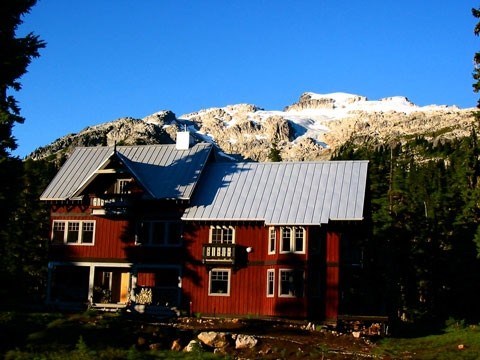The Province confirmed this week that they have budgeted $6.2 million from the general contingency fund to assist Whistler's Olympic legacies until they can become self-sufficient.
The funding was included in a three-year budget and includes $600,000 for the second half of 2010 when Whistler Sport Legacies (WSL) took possession of the venues, $2 million in operating funds in 2011 and $3.6 million in total funds for 2012. The 2012 figure includes various capital projects at WSL venues.
"The money comes from the culture, sports and community ministry and from government contingencies," explained Joan McIntyre, the MLA for the West Vancouver-Sea to Sky riding. "No other ministry programs were impacted by that commitment."
McIntyre said that the government expected all along to have to provide some funding to the Olympic legacies for at least the first five years after the Games.
"Since WSL assumed operations of the legacy venues, (the ministry) knew they would have to commit," said McIntyre. "The idea is to get the venues to be self-sustaining, but they can't get there yet from just the Games Operating Trust so that means a commitment from the province."
The Games Operating Trust was created by the Government of Canada and the Province of B.C., with each partner in the Games contributing $55 million to create a trust for the 2010 Games legacies. Interest on the $110 million fund - which has fluctuated in value from a high of $131million before the recession to a low of under $100 million after the crash - is split evenly, with 40 per cent going to the Richmond Oval, 40 per cent to Whistler Sport Legacies and 20 per cent going into the contingency.
In 2011, the disbursement from the fund to Whistler's legacies was just under $2.7 million, including some money from the contingency fund.
McIntyre said that there could be additional money allocated for WSL next year when a new three-year budget is decided.
"We're thinking it will take four or five years until the revenues from 2010 and Games Operating Trust can cover the full amount, and hopefully in will be done in the next four or five years. So we will have to look at additional requests in light of the WSL business plan and in light of our other priorities," she said.
"In a sense we're acknowledging that it's gong to take a while longer, but it isn't a long-term commitment yet."
But while the province had expected to provide funding for WSL, the contribution was not made public until last week when the private operator of Callaghan Country complained that taxpayer dollars were being used to prop up neighbouring Whistler Olympic Park.
Both organizations have been partners since the start of the Olympic cross-country ski development, but that partnership dissolved this year over pass sale disagreements that the operator thought were open to negotiation. Now both areas will operate competing cross-country ski trail networks in the Callaghan Valley, with the Whistler Olympic Park benefitting from public funding through the Games Operating Trust and provincial contribution.
WSL is a private not-for-profit organization created by stakeholders to manage Whistler's legacies, which include the Whistler Sliding Centre, Whistler Olympic Park and the Whistler Athletes Centre and lodge - venues with a total value of $270 million.
Partners in WSL include the Resort Municipality of Whistler, the Canadian Olympic Committee, the Canadian Paralympic Committee, the Province of B.C., Lil'wat Nation, Squamish Nation and VANOC - represented by former VP of sport for the 2010 Games Tim Gayda.
While Whistler's venues were paid for by public tax dollars, the Games Operating Trust was created with tax dollars and the province is continuing to invest tax dollars, as the private not-for-profit the WSL is not required to post annual budgets or provide financial details to the media. Instead, the organization shares that information with its appointed board of directors.
The model was set up by stakeholders as part of a Multiparty Agreement established in the run-up to the Games, and was handed down to the WSL. It's similar to the management model followed by the Canadian Olympic Committee.
However, a WSL spokesperson confirmed that $1.6 million of the $3.6 million for 2012 would go towards capital projects at all three venues, which will be determined by the WSL board as part of their 2012 planning process.
"Our budgets are very limited, so the nature of our business is primarily operational, which our board and staff have the expertise to provide direction on," said WSL in a statement. "We would of course seek public consultation before we pursued any major project such as future development."




